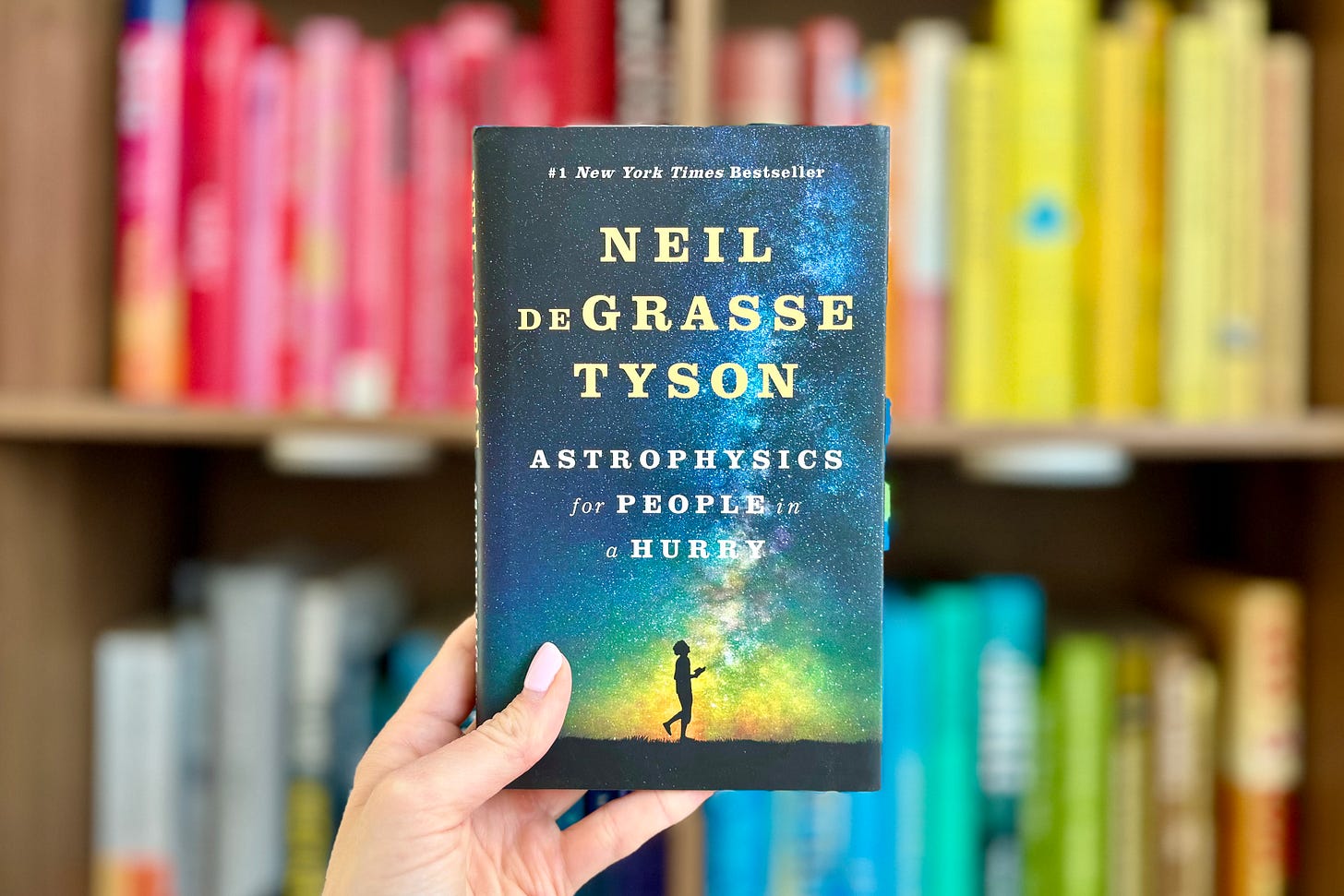Astrophysics for people who already know a lot about astrophysics
I was not exactly blown away by Neil deGrasse Tyson’s brief history of the cosmos.
I wanted to love this tiny little book (I still can’t stop staring at the cover) but I came away from it feeling pretty uninspired. Neil deGrasse Tyson is praised for his ability to translate the scientific into the everyday. I’d certainly agree from what I’ve seen of his videos, but with this being my only written exposure to the author so far, I can’t agree with this praise as it relates to his writing.
This little volume swings between simplified, saccharine sentiments about the universe and oddly technical scientific discussions that assume a broader knowledge of scientific terms than I imagine the intended reader would have at their disposal.
The outpouring of positive reviews of this book has me baffled, and I can’t help but wonder if the author’s celebrity has anything to do with it. I felt like I came away from this book with very little, but perhaps one day I’ll revisit it and be surprised.
Author: Neil deGrasse Tyson
About: How the universe came to be
Rating: 2/5
Favourite quote: “After the laws of physics, everything else is opinion.”
Mental models
Cosmic perspectives
Sometimes things can only be truly understood by zooming out all the way. ‘Cosmic understandings’ change perspectives on Earth. Says the author: “I learned in biology class that more bacteria live and work in one centimetre of my colon than the number of people who have ever existed in the world. That kind of information makes you think twice about who—or what—is actually in charge.”
Did you read Astrophysics for People in a Hurry? Let me know what you thought.
Related reads:
A Brief History of Time (Stephen Hawking, 1988)
Cosmos (Carl Sagan, 2013)
Seven Brief Lessons on Physics (Carlo Rovelli, 2016)


